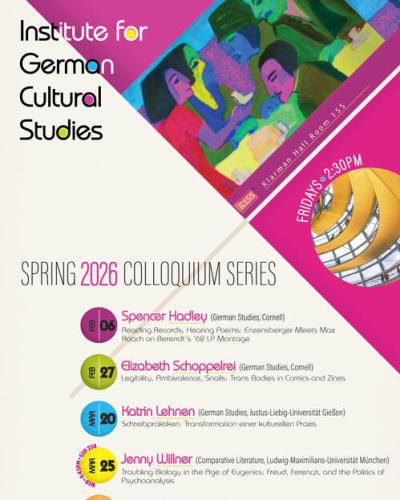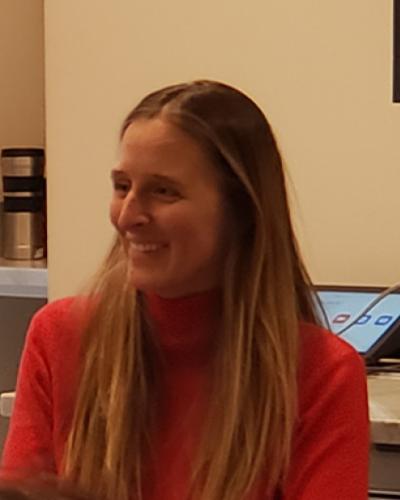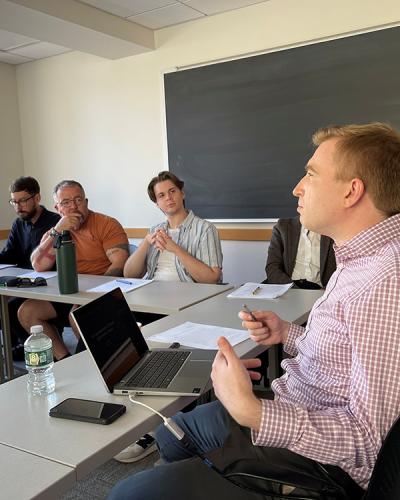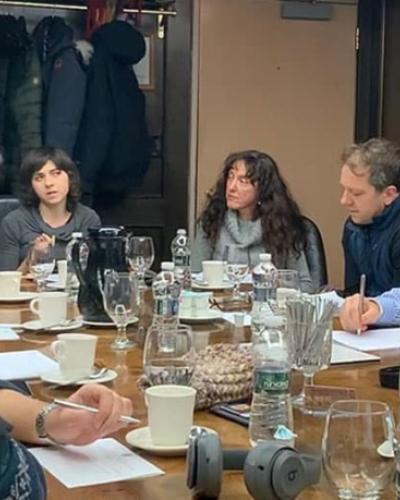On February 7th, Professor Erica Weitzman (Northwestern University) joined our colloquium series with a paper on Franz Kafka’s Das Schloß, which forms part of her forthcoming book, currently entitled At the Limit of the Obscene: German Realism and the Discourse of Matter. The book explores representations of matter and materiality in German-language realist and post-realist literature from Adalbert Stifter to Kafka, while aiming to show the emergence of the concept of the obscene out of an ambiguous relationship between matter and materiality. For Professor Weitzman, the obscene in those German literary texts goes beyond traditional definitions of obscenity by appearing as an anthropocentric devaluation of physical matter through the shameless display of materiality and matter.
As part of this larger book project, Weitzman’s analysis of Kafka’s novel-fragment Das Schloß examines the central question of what happens to realism in the absence of “reality,” as well as in the absence of confidence that the representation of the material world gives access to the truth of that world. For Weitzman, Kafka’s Das Schloß approaches the conventions of nineteenth-century realism while critically examining realism’s problematic relationship to the material world and assessing the metaphysical principles that underlie it. Through the provocative representation of profane and unpleasant materiality, the comically ubiquitous presence of bodies, dirt, mass, matter, and clothing, Das Schloß eliminates distinctions between base matter and its transcendence, and can therefore, as Professor Weitzman argues, be seen as both a reevaluation and travesty of realism’s traditional concerns with humanist transfigurations of the phenomenal and the sensual.
Professor Erica Weitzman’s paper on Kafka’s Das Schloß gave rise to a lively discussion. Topics evolved around conceptual questions of realism, concerning the acknowledgement of the diversity and transnationality of the phenomenon of realism, as well as intersections and correlations between Professor Weitzman’s work and other notions of both realism (e.g., by Auerbach and Lukács) and naturalism. Other questions touched upon the relation of the obscene to nature, the symbolism of space, and the understanding of filth (in relation to Mary Douglas). The discussion continued at a warm reception following the event. (Isabel Choinowski)





